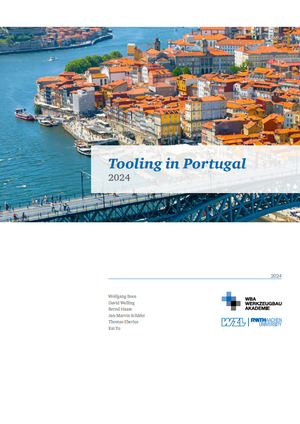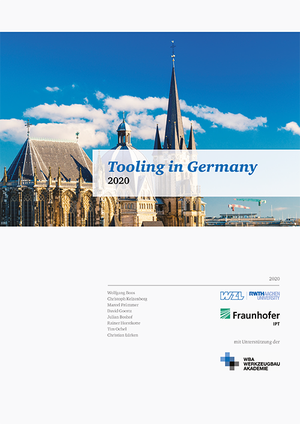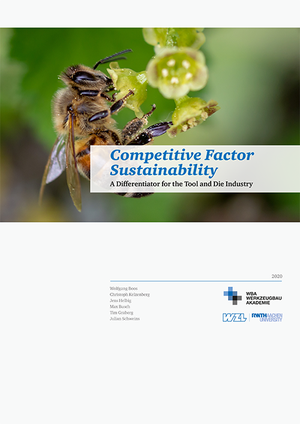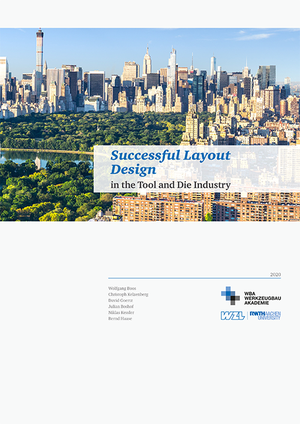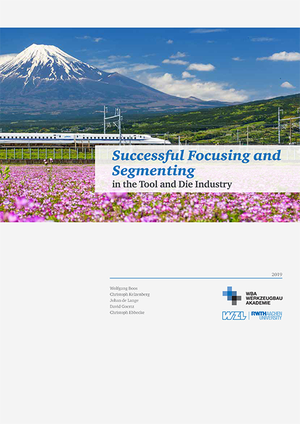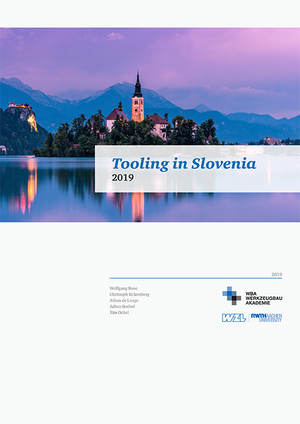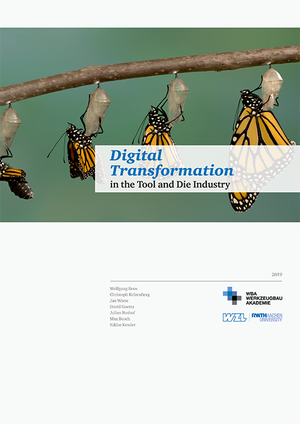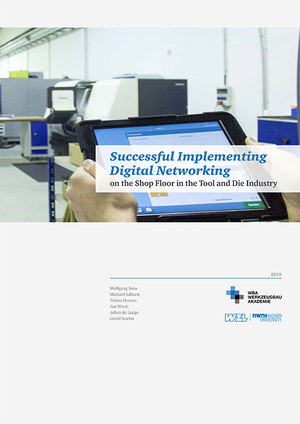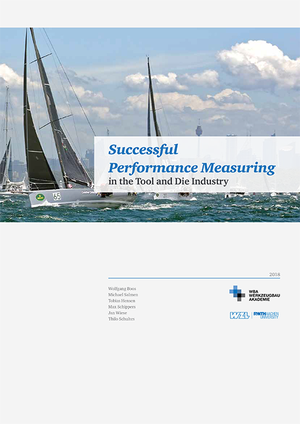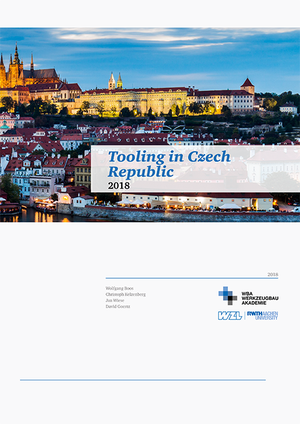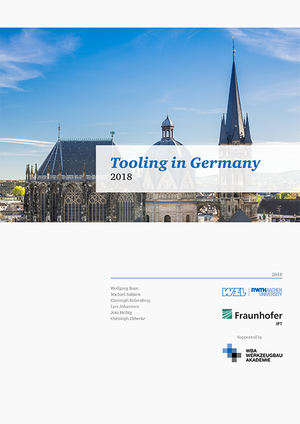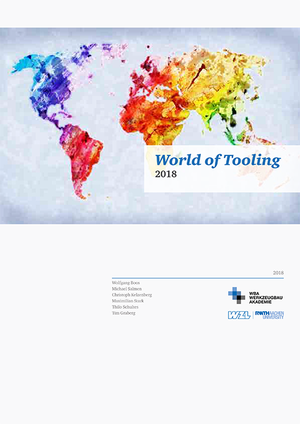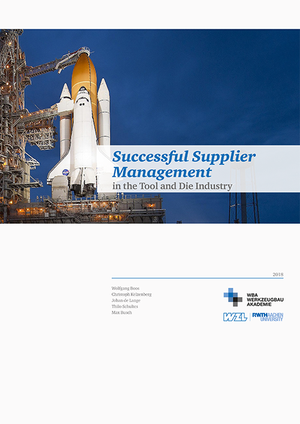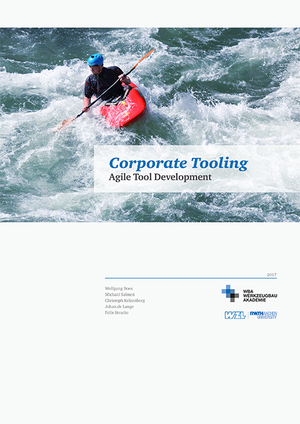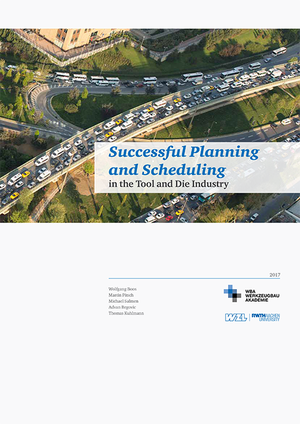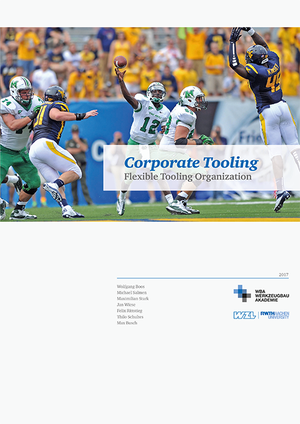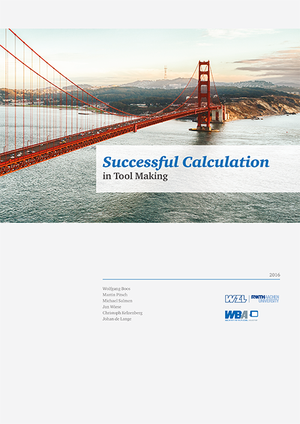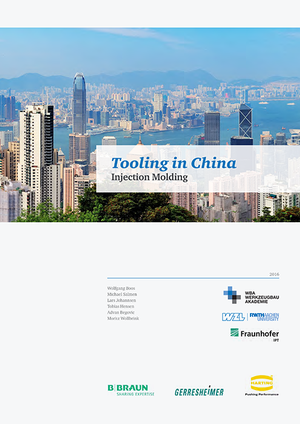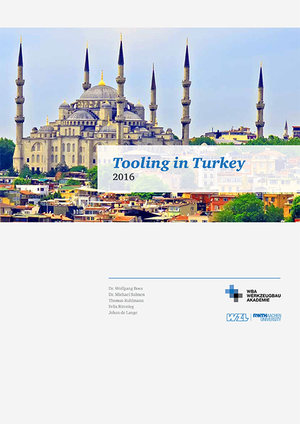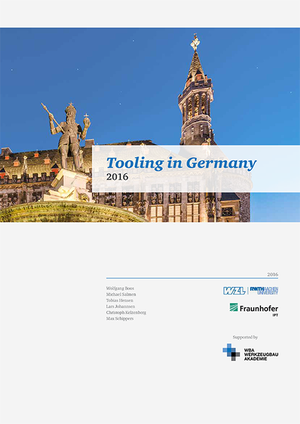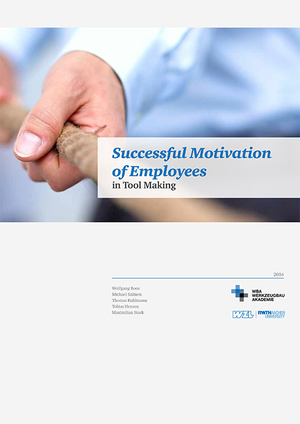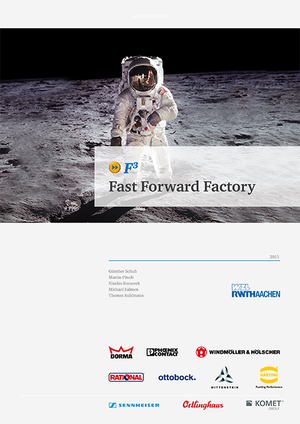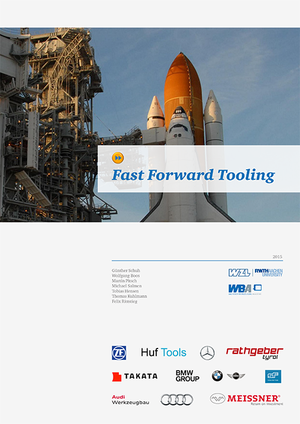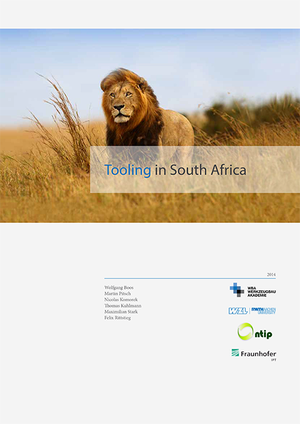our studies
2024
Tooling in Portugal
Portuguese toolmaking is rightly highly regarded in Europe and around the world. The overall global political situation in particular makes Portugal an interesting partner for strategic tool procurement. In the unique cluster structure, toolmaking companies and series producers can find high-quality tools of any complexity and size. The study provides an insight into the general structure of the toolmaking industry, which has seen record sales in recent years, and gives buyers practical tips for procurement. Particular focus is placed on injection mold making companies that have been able to convert the investments of recent years into productivity gains.
2020
Tooling in Germany
The study “Tooling in Germany” conveys an impression of Germany as a nation of toolmaking as well as the development and status quo of the performance of German tool shops. The study also shows trends within the German tool and die industry. These trends provide insights for potential solutions so that German tool shops can continue to position themselves successfully in the competition in the future.
2020
Competitive Factor Sustainability
The study "Competitive Factor Sustainability – A Differentiator for the Tool and Die Industry" addresses exactly this issue and presents a target picture of sustainable tool and die making with fields of action in the dimensions of service portfolio, resources, process and employees. Within these dimensions, practical impulses are given and a guideline for the self-conduction of a sustainability audit is also presented.
2020
Successful Layout Design
This study, „Successful Layout Design in Toolmaking“, provides tool shops with a practiceoriented procedure for systematically designing their own layout in line with company-specific constraints to maintain their competitiveness in the long term.
2019
Successful Focusing and Segmenting
In order to be able to meet the challenges of a heterogeneous range of products and services as well as opposing target dimensions, focusing and segmenting the value creation process of a toolmaking company is a suitable approach. The focusing of the product and service spectrum includes both the limitation to economically significant services of the respective tool shop and the strategic, organizational, and technological harmonization of product and service creation.
2019
Tooling in Slovenia
The awareness level of the Slovenian tool and die industry is relatively low for international companies due to its small size. Therefore, this study provides a general insight into the characteristics of the Slovenian economy and focuses on the Slovenian tool and die industry in particular.
2019
Digital Transformation in the Tool and Die Industry
The digital transformation is a central lever for optimizing the value creation of services and offering new product-service-systems. Despite its enormous potential, the German tool and die industry currently has no systematic approach to harness the data available in companies and thus to exploit the potential that actually exists. The guideline „Digital Transformation in the Tool and Die Industry“ provides recommendations for action not only for the creation of data-based product-service-systems but also for data data-based product-service-system provision. In addition to the description of a systematic approach including the instruments to be used, the content is presented in detail by means of a Use Case and various topic-related excurision chapters.
2018
Successful Implementing Digital Networking
The tool and die industry is facing far-reaching changes. The fourth industrial revolution is promising an abrupt rise in productivity based on smart networks for manufacturing resources. The foundation for this is the use of networked digital devices on the shop floor. Similar to other industries, the systemwide use of data offers a chance for the improvement of transparency and efficiency increase.
2018
Successful Performance Measuring
The given study gives a summary of relevant key performance indicators in the tool and die industry and presents a cockpit of key performance indicators (KPI cockpit) for performance measurement.
2018
Tooling in Czech Republic
From the point of view of foreign customers, a detailed market knowledge pertaining to the performance capabilities of suppliers and collaboration partners is necessary. This study provides an insight into the characteristics of the Czech economy as well as the Czech tool and die making industry.
2018
Tooling in Germany
The study “Tooling in Germany” provides an overview of the German tool and die industry as well as current challenges and trends. The study shows the development and status quo of German tool shops with regard to the dimensions product, process and resources.
2018
World of Tooling
There is hardly any industry in which it is more difficult to gain market insights than the tool and die industry. It is a niche industry and moreover characterized by small and medium-sized companies worldwide. However, its products enable efficiency, reliability and innovation in serial production. A supply of tools and dies, which fulfills the requirements while remaining cost-efficient, will always lend a competitive advantage and therefore international market intelligence will continue to be essential!
2018
Successful Supplier Management
Due to a batch size of one as well as the associated low order quantities and purchasing budgets, supplier management in the tool and die industry is a challenge. Suppliers with deep technological competence and efficient processes must be systematically identified, further developed and integrated into business processes. This requires a structured process that is ideally supported by digital tools. In the long term, systematic supplier management enables tool shops to shorten lead times, increase flexibility and reduce costs.
2017
Agile Tool Development
In order to become partners who treat each other as equals, the tool and die industry needs to fulfill three central elements on the path to „Corporate Tooling“. The first element is agile tool development, which integrates itself into the customer‘s product development process at an early stage with a coordinated product and service spectrum. For this purpose, agile methods are used in tool and die development processes for successful project and process management.
2017
Successful Planning and Scheduling
Proactive planning and scheduling in the tool and die industry addresses the target figures reliability, cost optimization and transparency. It has a consistent planning structure that is individually adapted for each company as well as a binding planning process. The planning system is optimally supported with efficient procedures and systematically ties in external suppliers. Ultimately, the right planning and scheduling can sustainably strengthen the competitiveness of tool shops.
2017
Flexible Tooling Organization
In order to become partners who treat each other as equals, the tool shop needs to fulfil three central elements on the path to “Corporate Tooling”. The first element is agile tool development, which integrates itself into the customer’s product development process at an early stage with a coordinated product and service spectrum. For this purpose, agile methods are used in the tool development processes for a successful project and process management. The second element is intelligent tool manufacturing, which describes the operative implementation of industry 4.0 applications in order processing. These include digitally supported employee management, digital order and resource management as well as human-machine interaction. The third element is the flexible tooling organization, which has both flexible and clearly defined organizational structures. The organization’s task is to use algorithms to make existing knowledge available throughout the entire tool shop and to promote networking with external partners at the same time.
2016
Successful Calculation
For tool rooms, a successful calculation of costs is an important prerequisite for their own ability to compete. With a lot size of one, this calculation is a major challenge within the tool making industry. It is composed of a company-specific approach, a reproducible classification and an intelligent back-coupling of information.
2016
Tooling in China
The present study gives an overview of the business environment in China, the offered molds, the process design as well as the resources available and the organizational structure of Chinese injection mold manufacturers.
2016
Tooling in Turkey
The Turkish economy has grown continuously in the past decades. The growth is mainly driven by the manufacturing industry, which profits from the geographic proximity to Europe as well as the still low factor costs. This development is accompanied by a continuously increasing demand for more sophisticated tools, which makes Turkey gain in significance for European tool shops as a sales market. At the same time, the number of Turkish tool shops that are capable of manufacturing tools of average complexity in good quality is rising. Thus, Turkey is also coming into the focus of European companies as a procurement market. However, the Turkish tool market is non-transparent and the capabilities as well as the structures of the companies are very heterogeneous. Detailed knowledge of the market with respect to the abilities of potential suppliers or partners in the tool and die making industry is therefore increasingly valuable for successful tool procurement.
2016
Tooling in Germany
The study “Tooling in Germany” provides an overview of the German tool and die industry as well as current challenges and trends of the tool making sector. The study shows the development and status quo of German tool shops with regard to the dimensions product, process and resources.
2016
Successful Motivation of Employees
Employees are the backbone of their companies, especially in know-how intensive sectors such as the tool and die industry. They carry the company’s knowledge in themselves and help to achieve economic success. Particularly in times of shortage of skilled workers, employees are both the rarest “resource” and most important success factor. Hence, it is all the more important to bind them to the company for the long-term and mobilize their full potential. Studies show that employees are more productive and loyal if they exhibit a high degree of satisfaction and motivation. Companies of the “new economy”, such as Google or eBay, have long recognized the potential in employee motivation. However, in the tool and die industry, which is characterized by small and medium-sized enterprises, motivation of employees is often not addressed, even though it plays a vital role for the long-term preservation and development of competitive ability.
2015
Fast Forward Factory
Manufacturing companies also need to be in a position to master the art of faster, better, further. Specifically, they have to arrange their value creation process more efficiently. This allows them to survive in competition, and to continue developing their products in the long term. Lean Thinking has provided a useful formula for this. The up-and-coming Industrie 4.0 age now offers a new, fast infrastructure, and fundamentally changes people‘s behaviour. But what benefits can Industrie 4.0 bring? How does that fit in with my target system, my industry, my company?
2015
Fast Forward Tooling
The tool making industry is the central enabler of a powerful serial production and therefore significantly responsible for innovations. Fast Forward Tooling – tool making of the future! Serial producers and tool making companies alike must deal with the nine success factors in the sectors of product, process and resources. The design of these factors of success enables a future-oriented and efficient added value in the tool making industry.
2014
Tooling in South Africa
Currently the overall tooling capabilities in terms of products, processes and resources are well below those of developed tooling countries such as Germany. The majority of tool shops manufacture only locally for the Sub-Saharan markets with a limited and simple tool range, little process know-how as well as a lack in resources that restricts the manufacturing of complex tools. However, there are few tool shops in South Africa that are able to compete internationally. The wide spread of available tooling competences and tooling know-how shows potential for a positive development of the industry in upcoming years. Furthermore the few outstanding tool shops confirm that tooling on an international best practice level is possible in South Africa, regardless of the still noticeable restraints of the industrial environment.
